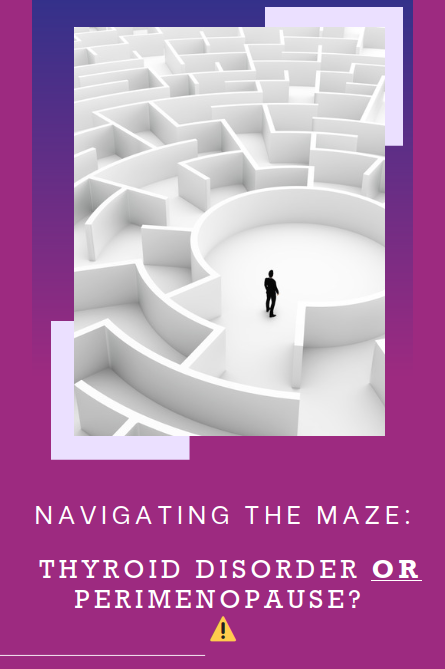Wake up in the morning feeling like Bea Arthur (Golden Girls, not P. Diddy)* wondering if you even really slept. Though your head is cloudy, you can remember being too hot and tossing covers off and then back on again all night. As the fatigue and irritability start to set in, knowing what’s expected of you today, you emit a low growl at both the scale and anyone who tries to talk to you before coffee. This exilir is what you’ll rely on to drag your human meat suit around and attend to all things you have to do. Sure, “maybe we’ll have a salad for lunch” you think before another part of you says “you’ve been gaining weight anyway so might as well choose something you really want for lunch.” What’s the point? Oh then it’s meetings, meetings, meetings the rest of the day. At least you have coffee to keep yourself propped up and for some mental clarity. You wonder, “is this what life is supposed to look like at this age?”
As women journey into our 40s and 50s, we often encounter a unique intersection of health challenges. The overlapping symptoms of thyroid disorders and perimenopause can create an incredibly confusing landscape of changes that affect both physical and mental well-being. At One Bite Wellness, this is one of the crucial complexities we attend to in order to offer comprehensive support and guidance.
Understanding the Thyroid and Perimenopause
Perimenopause, the transitional phase before menopause, marks a time when estrogen and progesterone levels ebb and flow. This period of fluctuation can be both liberating and daunting, as it marks the end of reproductive years and the onset of new health challenges…and it can feel like an emotional and physical rollercoaster. Adding thyroid issues to the mix complicates matters further as the thyroid gland plays a vital role in regulating metabolism, energy production, and overall hormonal balance. Symptoms like chronic fatigue, unexplained weight gain, and persistent brain fog can amplify the already challenging perimenopausal experience. If one has both thyroid issues and perimenopause, the interplay of these conditions can leave you feeling overwhelmed, battling not just the external changes but also the internal struggle of managing your well-being and energy levels daily.
Overlapping Symptoms
- Fatigue: Both thyroid issues (especially hypothyroidism) and perimenopause can cause fatigue, making it challenging to pinpoint the exact cause without proper testing. Hint: it’s probably not a caffeine deficiency!
- Weight Changes: Unexplained weight gain or difficulty losing weight can be attributed to both thyroid dysfunction and hormonal changes during perimenopause.
- Mood Swings: Hormonal fluctuations in perimenopause can lead to mood swings, irritability, and anxiety, which may also be present in thyroid disorders.
- Sleep Disturbances: Both conditions can disrupt sleep patterns, leading to insomnia or frequent waking during the night.
- Brain Fog: Cognitive issues such as forgetfulness, difficulty concentrating, and mental fogginess can occur in both thyroid disorders and perimenopause.
What Can Be Done
Comprehensive testing is key for proper diagnosis. Comprehensive thyroid testing, including TSH, free T3, free T4, and thyroid antibodies, can help differentiate between thyroid disorders and perimenopause-related symptoms. Testing female hormones can also shed light into what’s going on behind your symptoms.
For perimenopause symptoms, supporting hormone balance through diet and lifestyle changes can be beneficial.
A diet rich in nutrients essential for thyroid function, such as iodine, selenium, and zinc, can support thyroid health. Additionally, incorporating foods rich in phytoestrogens, such as flaxseeds and soy, can help balance hormones during perimenopause.
Chronic stress can exacerbate both thyroid and perimenopause symptoms. Stress-reducing practices like yoga, meditation, or tai chi can be beneficial.
Overall health can be supported by engaging in regular physical activity, getting adequate sleep, and avoiding smoking and excessive alcohol (and coffee!) intake.
What to Do Next
Navigating the overlapping symptoms of thyroid disorders and perimenopause requires a comprehensive and holistic approach. As an integrative and functional dietitian-nutritionist, supporting clients through proper testing, personalized nutritional support, and lifestyle modifications can help them manage symptoms effectively and improve their overall well-being.
* P.S. Apologies if the reference above makes an öhrwurm or earworm out of Ke$sha’s “Tik Tok” song for you!
